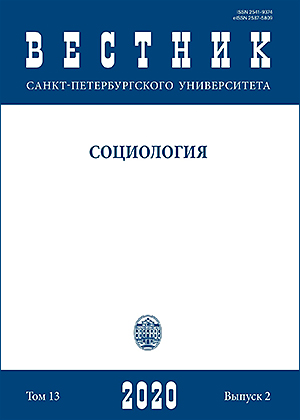От стимулирования к самоорганизации: эволюция управленческих подходов
DOI:
https://doi.org/10.21638/spbu12.2020.203Аннотация
В статье представлен обзор эволюции подходов к управлению трудовой мотивацией от классического тейлоризма до современных аджайл-методов. Автором рассматриваются основные подходы к трудовой мотивации в контексте их связи с принципами аджайл (т. н. «гибкий» подход к управлению, подразумевающий переход от иерархии и функционального разделения сотрудников к плоской управленческой структуре и самоорганизующимся командам). Менеджмент в XX веке эволюционировал от простых форм к сложной иерархичной организации, деперсонализации и бюрократизации бизнес-процессов до тех пор, пока это не стало мешать развитию и конкурентоспособности. После чего начинается обратное движение — к более плоской структуре управления и провозглашению приоритета «людей и взаимоотношений» по отношению к «процессам и инструментам», к «мотивации без стимулирования». Логика в отношении мотивации работников претерпела изменения: от идеи, что мотивацией можно и нужно
управлять с помощью внешних стимулов до убеждения, что любая попытка внешнего воздействия может только демотивировать сотрудников. Автор разработала типологию подходов к трудовой мотивации на основании выраженности двух составляющих в теории: система — актор и стимулирование — самоорганизация. Дихотомия система — актор показывает, как та или иная теория объясняет трудовую мотивацию: фокусируя внимание на системе управления или на индивидуальных особенностях актора, трудовых ценностях или потребностях. Дихотомия стимулирование — самоорганизация объясняет, как именно предполагается воздействовать на мотивацию индивида или группы: через целенаправленное стимулирование или создание условий для самоорганизации. Эти дихотомии выбраны для выделения типологии в связи с их важностью для аджайл-подхода, который является результатом развития технологического, социального и экономического контекста, в котором формировались подходы к трудовой мотивации. В статье делается акцент на трех аспектах мотивации: материальное поощрение, социальная среда, содержание труда. Эти аспекты обладают наибольшим значением для аджайл-менеджмента, и фокус на них позволяет увидеть принципиальные отличия аджайл-практик от традиционных подходов к управлению.
Ключевые слова:
мотивация, трудовые ценности, аджайл, социальная группа, вовлеченность, самоорганизация, установки
Скачивания
Библиографические ссылки
References
Загрузки
Опубликован
Как цитировать
Выпуск
Раздел
Лицензия
Статьи журнала «Вестник Санкт-Петербургского университета. Социология» находятся в открытом доступе и распространяются в соответствии с условиями Лицензионного Договора с Санкт-Петербургским государственным университетом, который бесплатно предоставляет авторам неограниченное распространение и самостоятельное архивирование.




